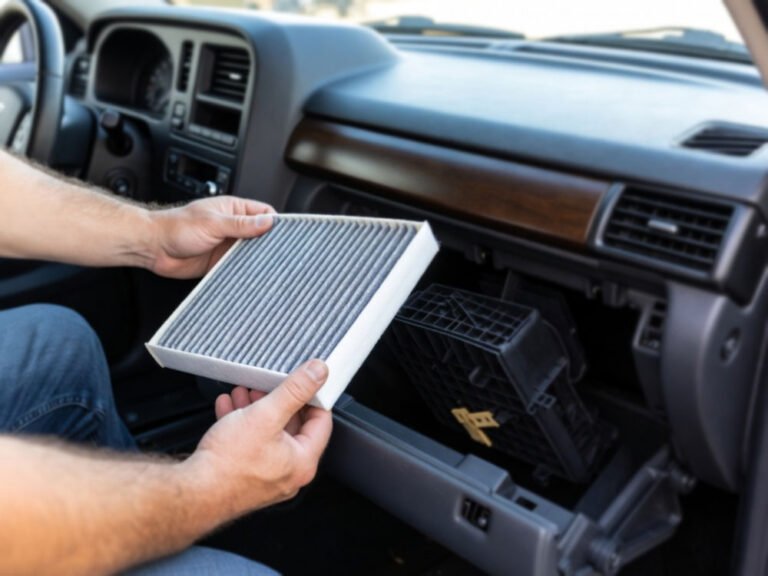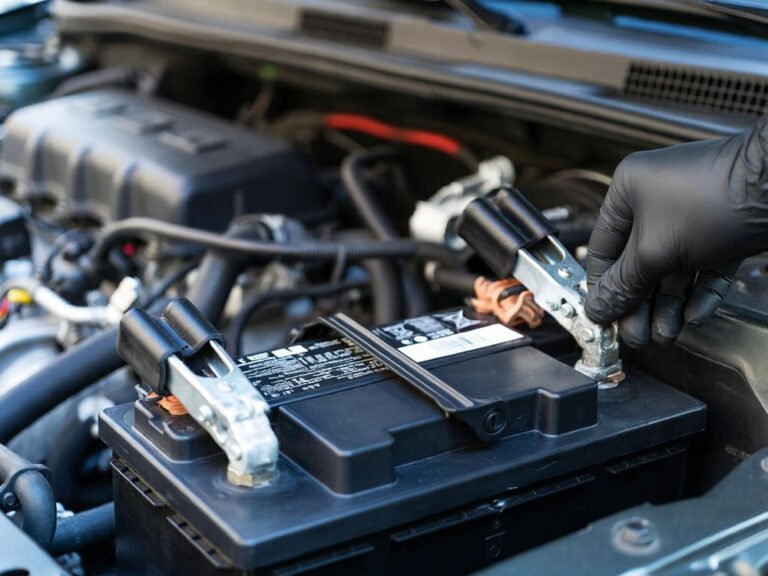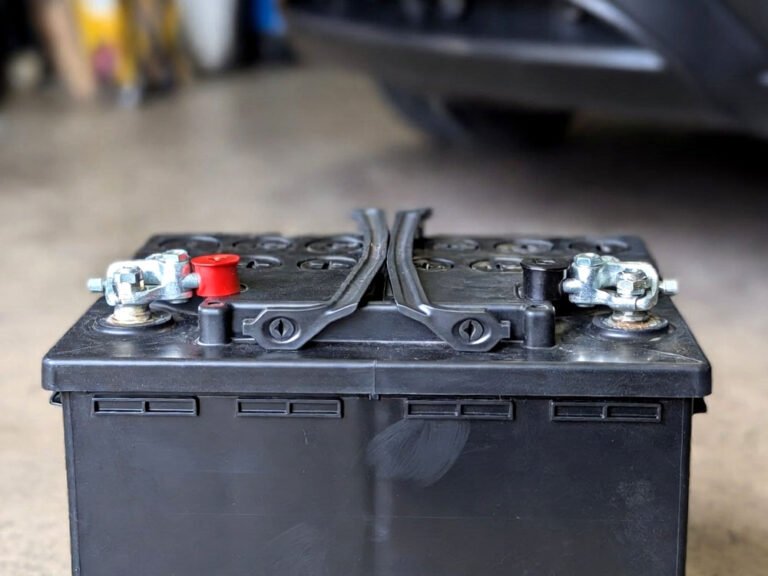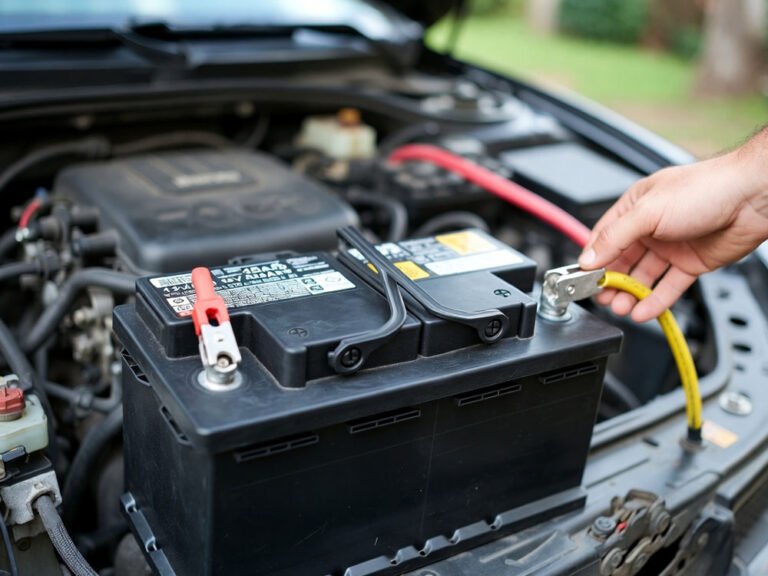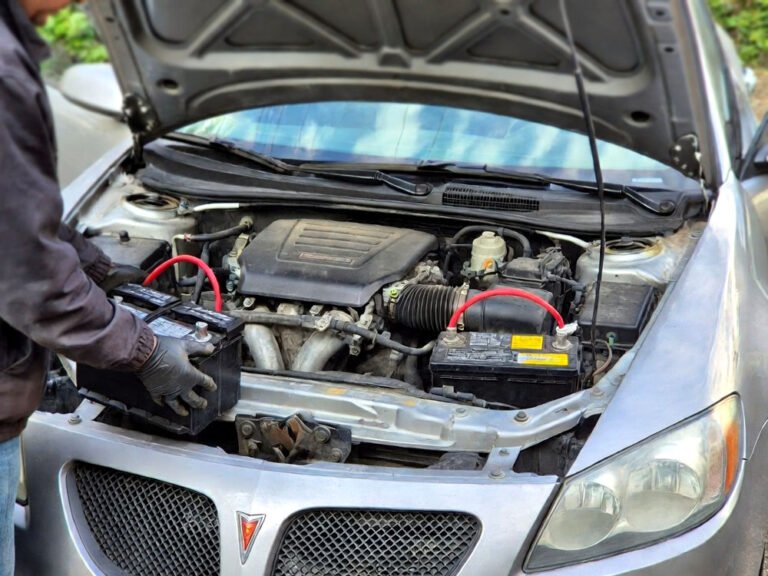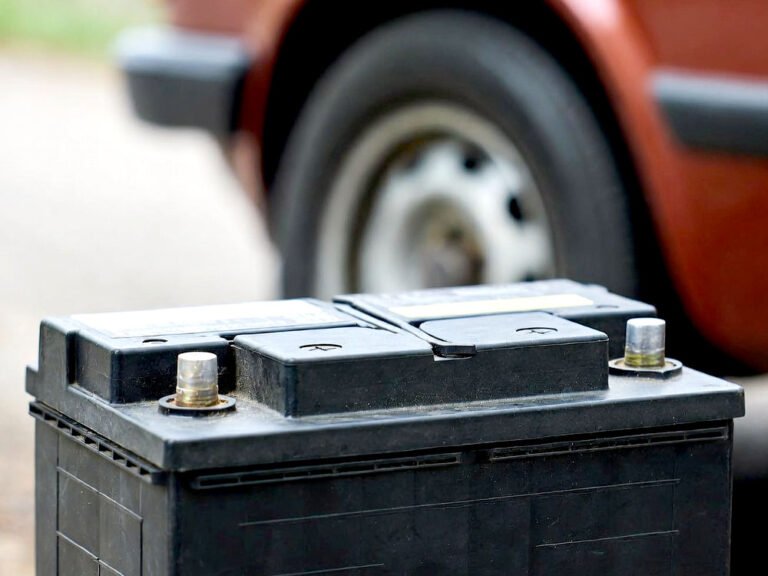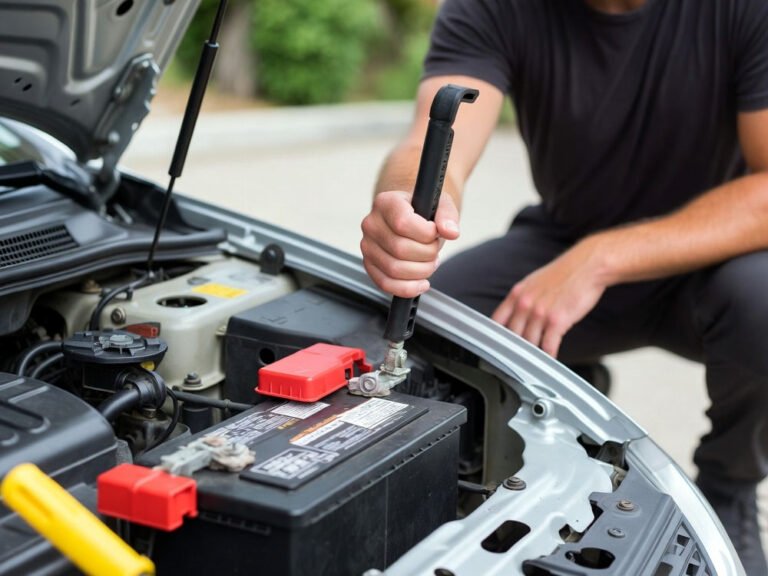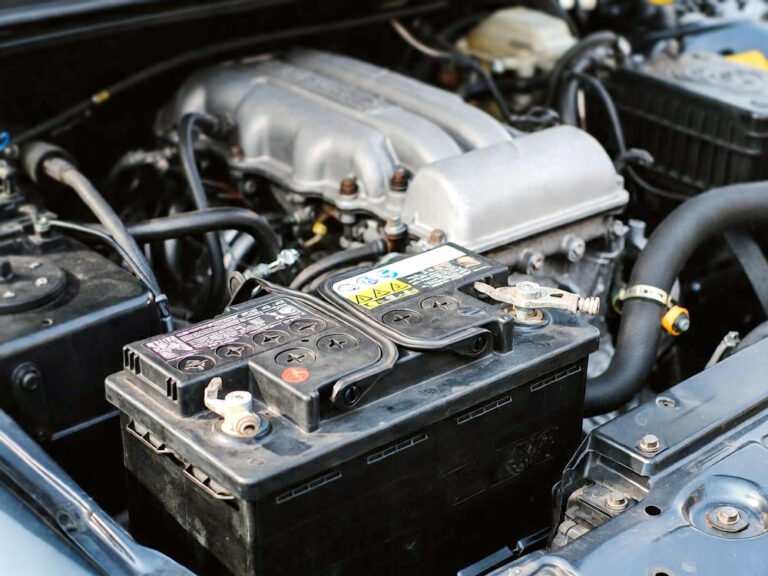You might have noticed your car runs smoothly when it is just sitting still or idling, but the moment you press the gas pedal, it feels slow, weak, or bogs down. This problem can be frustrating and scary, especially if you need your car to drive well every day. The good news is that most of the time, this issue happens because of simple problems like dirty parts or small sensor troubles. In this article, you will learn why your car idles fine but bogs when accelerating, and how to fix it step by step.
Why Your Car Runs Well When Idling but Struggles to Accelerate
When your car is idling, it means the engine is running but the car is not moving. At this time, the engine does not need much power. But when you press the gas pedal, the engine has to work harder to speed up and move the car forward. If your car bogs or feels slow during this time, it means the engine is not getting what it needs to do the job well.
One of the most common reasons for this is that the engine is not getting enough air or fuel. Your car needs the right mix of air and fuel to burn inside the engine and make power. If something is blocking air or fuel flow, or if the mix is wrong, the engine will not work right. Sometimes, this is because the air filter is dirty, the fuel filter is clogged, or the sensors that tell the car how much fuel to add are not working well.
Another cause can be a problem with the spark plugs. Spark plugs help the engine burn the fuel and air mix by creating a small spark at the right time. If they are old or dirty, the spark might be weak, and the engine will struggle to speed up. Also, a dirty or failing mass airflow sensor (MAF) can send bad information to the car’s computer, causing it to add too little or too much fuel.
The good news is you don’t always need a mechanic to fix this. You can check some parts yourself, like cleaning the air filter, checking spark plugs, or using an easy scanner tool to read error codes. Fixing these things can make your car run smoothly both at idle and during acceleration.
- The engine needs more power when accelerating than idling.
- A poor air-fuel mix can cause bogging.
- Dirty air or fuel filters block flow.
- Bad spark plugs can weaken engine power.
- Sensors like MAF affect fuel delivery.
- Simple fixes often solve the problem.
How to Check and Clean the Air Filter for Better Acceleration
Your car’s air filter stops dust and dirt from entering the engine. If the air filter is dirty or clogged, your engine gets less air than it needs. This makes the air-fuel mix wrong, so the engine bogs when you try to speed up.
Checking and cleaning your air filter is easy. First, open the hood of your car and find the air filter box. It usually looks like a black plastic box with clips or screws. Open it carefully. Take out the air filter and look at it in good light. If it looks dark, dirty, or full of dust, it needs cleaning or replacing.
You can clean some air filters by gently tapping them to remove loose dirt or using a soft brush. Some air filters can be washed with water and soap, but make sure to dry them completely before putting them back. If your air filter looks very dirty or torn, it is better to buy a new one. Air filters are usually cheap and easy to replace.
A clean air filter helps your engine breathe better. More air means better burning of fuel, which gives your car power to accelerate without bogging. Checking your air filter every 12,000 miles or once a year is a good habit to keep your car running strong.
- The air filter keeps dirt out of the engine.
- A dirty air filter reduces air flow.
- Reduced air causes poor acceleration.
- Cleaning or replacing the air filter improves power.
- Check air filter every 12,000 miles or yearly.
- Clean gently or replace if very dirty.
Why Dirty Fuel Filters Cause Acceleration Problems and How to Fix Them
The fuel filter is another part that can make your car bog when you try to accelerate. Its job is to stop dirt and rust from the fuel before it reaches the engine. Over time, the fuel filter gets clogged with dirt. This reduces the amount of fuel reaching the engine, so the engine starves and slows down.
If your car idles fine but bogs during acceleration, the fuel filter might be blocking fuel flow. You can’t always see this without taking it apart, so signs like poor acceleration and hesitation usually mean it is time to check.
Replacing a fuel filter is not very hard, but it depends on the car model. Some filters are inside the fuel tank and need special tools, but most are easy to find under the car or near the engine. Always check your car manual to locate it.
If you want to test, you can use a fuel pressure gauge. Low pressure often means a clogged filter. Replacing the fuel filter every 20,000 to 40,000 miles is a good rule, but if you notice acceleration problems sooner, it might be time to change it early.
Replacing the fuel filter gives your engine clean fuel and helps it accelerate smoothly without bogging or hesitation.
- The fuel filter cleans dirt from fuel.
- A clogged fuel filter reduces fuel flow.
- Less fuel makes the engine bog when accelerating.
- Fuel filters are replaced between 20,000 to 40,000 miles.
- Fuel pressure gauges can check filter health.
- Replace the filter to improve acceleration.
Spark Plugs and Ignition System: What Happens When They Fail
Spark plugs make tiny sparks inside the engine to burn the fuel and air mix. If the spark plugs are worn out, dirty, or broken, the spark will be weak or miss, causing the engine to run rough or bog when accelerating.
When you press the gas pedal, the engine needs a strong spark to quickly burn more fuel and air. Weak spark plugs cannot keep up, so the engine hesitates or bogs.
You can check spark plugs by removing them with a special socket wrench. Look at the tip. If it is covered with black soot, oily, or cracked, the spark plug needs cleaning or replacement. Spark plugs usually last between 30,000 and 100,000 miles, depending on the type.
If you replace spark plugs, always check the gap (space between the metal parts) using a spark plug gap tool. The gap needs to be right for the spark to jump easily. Also, check the ignition wires or coil packs for damage or wear, as they carry the electric power to the plugs.
If spark plugs or ignition parts are bad, you will notice rough idling, poor acceleration, and sometimes the engine won’t start well. Fixing spark plugs is one of the best ways to stop your car from bogging during acceleration.
- Spark plugs create sparks to burn fuel and air.
- Worn or dirty plugs cause weak sparks.
- Weak sparks make the engine bog when accelerating.
- Check and replace plugs every 30,000 to 100,000 miles.
- Always set the correct gap on new spark plugs.
- Ignition wires and coils also affect spark strength.
How Mass Air Flow Sensor Problems Affect Car Performance
The mass air flow (MAF) sensor measures how much air is coming into the engine. The car’s computer uses this information to decide how much fuel to add. If the MAF sensor is dirty or broken, it can send wrong data, causing the engine to get too little or too much fuel.
When this happens, your car may idle fine because the engine uses less fuel at rest. But when you try to accelerate, the wrong fuel amount makes the engine bog or hesitate.
Cleaning the MAF sensor is a simple fix you can try at home. The sensor is usually located near the air filter box inside a tube. Remove it carefully and spray special MAF cleaner on the sensor wires. Do not touch the wires with your hands or tools because they are very delicate. Let it dry completely before reinstalling.
If cleaning does not help, the MAF sensor might be bad and need replacement. Symptoms of a bad MAF include poor fuel economy, rough idling, and acceleration problems.
- The MAF sensor tells the car how much air enters the engine.
- A dirty or faulty MAF sends wrong air readings.
- Wrong air info causes bad fuel mix and bogging.
- Clean the MAF sensor with special cleaner carefully.
- If cleaning fails, replace the sensor.
- Bad MAF causes poor fuel economy and rough driving.
Why Fuel Injectors Matter and How Dirty Injectors Can Cause Bogging
Fuel injectors spray fuel into the engine in a fine mist so it can burn well with air. If fuel injectors get dirty or clogged, they do not spray fuel evenly. This causes the engine to get too little fuel or uneven fuel, making it hard to accelerate smoothly.
Dirty fuel injectors can happen from old fuel, bad gas, or lack of regular maintenance. Symptoms include rough idling, poor acceleration, and sometimes a strong smell of fuel.
You can clean fuel injectors by using special fuel injector cleaner liquid added to the gas tank. This cleaner helps remove dirt inside the injectors while you drive. For serious clogging, a professional cleaning or injector replacement might be needed.
Regular use of fuel injector cleaner and good fuel helps keep injectors clean and stops bogging issues. Clean injectors spray fuel evenly and keep your car running strong.
- Fuel injectors spray fuel in a fine mist.
- Dirty injectors spray fuel unevenly.
- Uneven fuel causes poor acceleration and bogging.
- Use fuel injector cleaner added to fuel tank regularly.
- Severe clogging may require professional cleaning.
- Clean injectors keep the engine smooth and powerful.
Final Thoughts
If your car idles fine but bogs when accelerating, it usually means the engine is not getting the right air or fuel. Checking and fixing simple parts like the air filter, fuel filter, spark plugs, MAF sensor, and fuel injectors can make a big difference. These parts work together to give your engine the power it needs to speed up smoothly. Regular care and attention can keep your car running strong and stop it from bogging during acceleration.
| Part | Problem Cause | Signs | Easy Fix | When to Check/Replace |
|---|---|---|---|---|
| Air Filter | Dirty/clogged | Poor acceleration, weak power | Clean or replace | Every 12,000 miles or yearly |
| Fuel Filter | Clogged with dirt | Hesitation, bogging | Replace | Every 20,000-40,000 miles |
| Spark Plugs | Worn or dirty | Rough idle, poor acceleration | Clean or replace, check gap | Every 30,000-100,000 miles |
| Mass Air Flow Sensor | Dirty or faulty sensor | Rough idle, bogging | Clean or replace | Check when symptoms appear |
| Fuel Injectors | Dirty or clogged | Rough idle, poor acceleration | Use fuel injector cleaner | Regular maintenance |
Frequently Asked Questions (FAQs)
Is it normal for a car to idle fine but bog when accelerating?
Yes, it can happen due to problems with air or fuel supply. Idling needs less power, so if parts like filters or spark plugs are dirty, the car may still run but struggle when accelerating. Fixing these parts usually solves the issue.
Can a dirty air filter cause acceleration problems?
Absolutely. A dirty air filter blocks air from entering the engine, causing a poor air-fuel mix. This makes the car bog or hesitate when you press the gas pedal. Cleaning or replacing the air filter improves airflow and engine power.
Do I need to replace spark plugs if my car bogs when accelerating?
If spark plugs are old, dirty, or worn, they can cause weak sparks and engine bogging. It is a good idea to check and replace spark plugs every 30,000 to 100,000 miles or if you notice acceleration problems.
Is it safe to clean the mass airflow sensor myself?
Yes, cleaning the MAF sensor is safe if you use special MAF cleaner and handle it carefully. Avoid touching the sensor wires because they are fragile. Cleaning often fixes sensor problems that cause bogging.
Can clogged fuel injectors cause my car to bog down?
Yes, dirty fuel injectors spray fuel unevenly, which leads to poor acceleration and bogging. Using fuel injector cleaner regularly can help keep them clean and your engine running smoothly.
Do I need to replace the fuel filter to fix bogging?
If the fuel filter is clogged, replacing it is the best fix. It stops dirt from blocking fuel flow to the engine. Replacing the fuel filter every 20,000 to 40,000 miles helps prevent bogging.
Is a failing ignition coil a reason for acceleration problems?
Yes, the ignition coil powers the spark plugs. If it is failing, the spark will be weak or missing, causing the engine to bog or hesitate. If you replaced spark plugs and still have problems, check the ignition coil.
Can using bad fuel cause bogging during acceleration?
Bad or old fuel can cause deposits in fuel injectors and filters, leading to poor fuel flow and engine bogging. Always use good-quality fuel and avoid leaving fuel in the tank for too long to prevent this problem.


